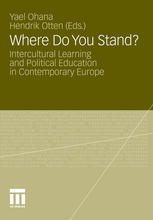

Most ebook files are in PDF format, so you can easily read them using various software such as Foxit Reader or directly on the Google Chrome browser.
Some ebook files are released by publishers in other formats such as .awz, .mobi, .epub, .fb2, etc. You may need to install specific software to read these formats on mobile/PC, such as Calibre.
Please read the tutorial at this link: https://ebookbell.com/faq
We offer FREE conversion to the popular formats you request; however, this may take some time. Therefore, right after payment, please email us, and we will try to provide the service as quickly as possible.
For some exceptional file formats or broken links (if any), please refrain from opening any disputes. Instead, email us first, and we will try to assist within a maximum of 6 hours.
EbookBell Team

4.1
70 reviewsThis publication takes up the many and often controversial debates about the nature, content, methods and political significance of intercultural learning in and for the European youth field. Its starting point is the current depoliticisation of intercultural learning in this field, and especially in the programmes of the European Commission and the Directorate of Youth and Sport of the Council of Europe over the last several years. At the same time, the elevation of “intercultural dialogue” to panacea for all societal problems, from civil war to educational failure, is putting the mobilisational value of intercultural learning to the test.